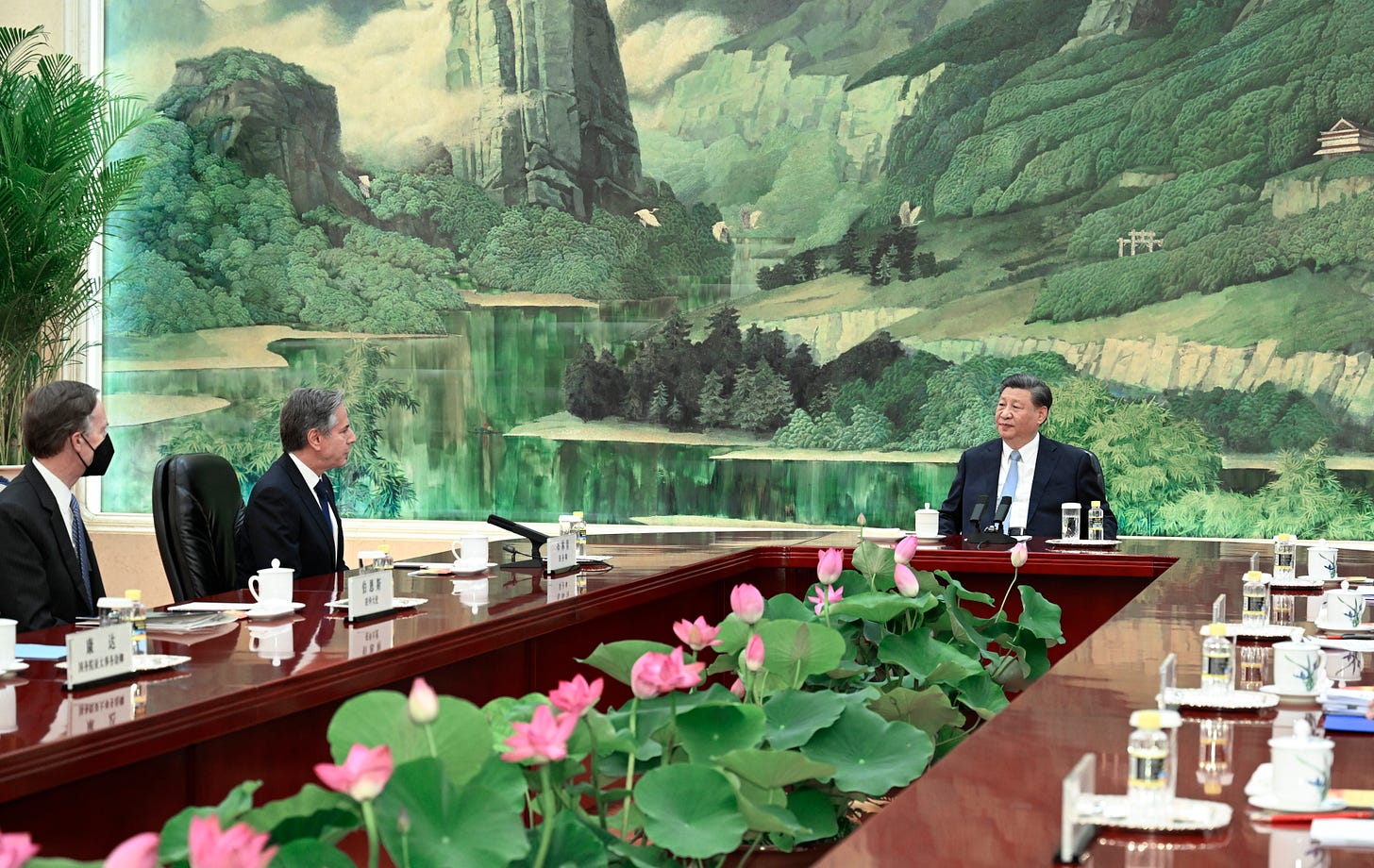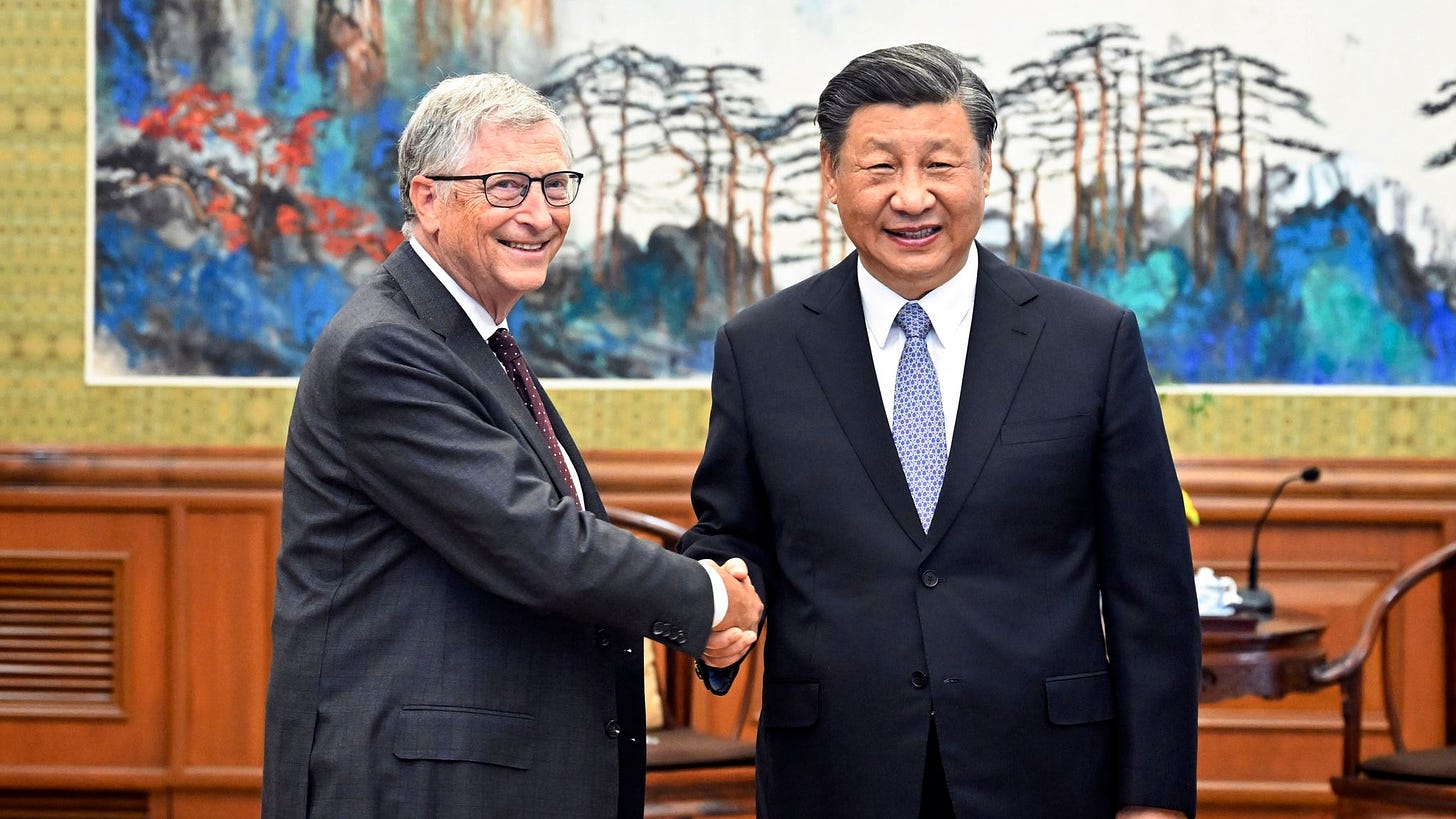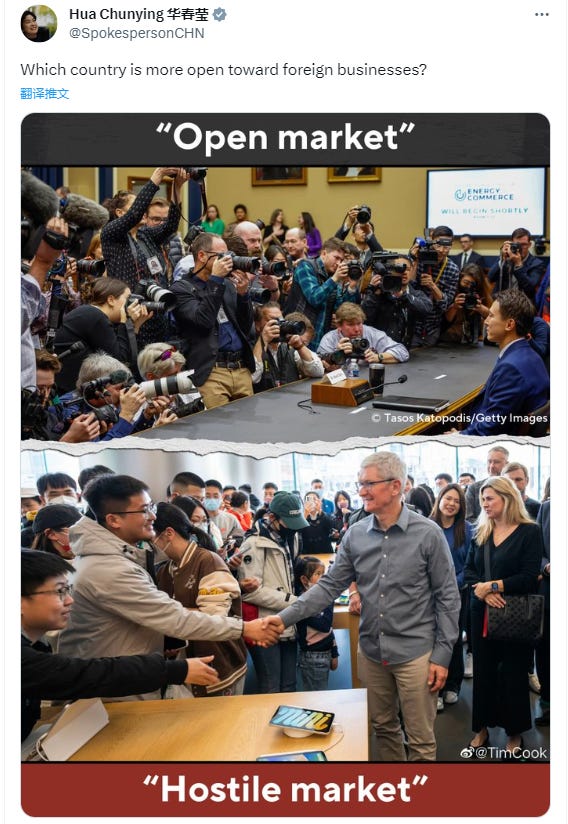
"Cold in politics, hot in economics"? How business dynamics play out in China-U.S. relations
Challenges and risks still loom large for China and the United States. Though recent business and political interactions were steps in the right direction, Rome wasn't built in a day.

Elon Musk, Bill Gates and Antony Blinken: the names of U.S. business and political figures who have made headlines in their recent visits to China have spelled out a mixed picture of relations between the two countries.
Seen as a move aimed at easing China-U.S. political tensions, U.S. Secretary of State Antony Blinken's latest visit to Beijing has drawn much limelight, and some progress was made to that end.
A readout of a meeting between Chinese President Xi Jinping and Blinken reassured the world that both sides remain committed to the common understandings Xi and U.S. President Joe Biden reached in Bali. Chinese State Councilor and Foreign Minister Qin Gang expressed willingness to make a visit to the United States in response to Blinken's invitation.
Blinken's visit and his exchanges with Xi are widely read as a sign of both sides trying to responsibly manage bilateral relations. Still, analysts believe improving relations is a work in progress.
POLITICS VS ECONOMICS
Some observers have described the China-U.S. relations in recent years as "Cold in politics, hot in economics." Despite intensifying anti-China rhetoric and actions by the United States, its trade with China in goods hit a new record of 690.6 billion U.S. dollars in 2022, according to data published by the U.S. Bureau of Economic Analysis.
"The interaction and exchanges between Chinese and U.S. high-level officials show that neither side can turn a blind eye to the imperativeness of their economic and trade cooperation," Lan Qingxin, a professor at the University of International Business and Economics, said in an interview.
While geopolitical discord continues to weigh upon China-U.S. dynamics, the U.S. business circle shows consistently strong interest in and commitment to partnership with the Chinese economy.
Blinken arrived in Beijing at the heels of Microsoft Corp. co-founder and philanthropist Bill Gates, who visited China for the first time since 2019. Xi met with Gates three days before he met Blinken, calling Gates "the first American friend I've met in Beijing this year."
"The foundation of China-U.S. relations lies in the people. We have always placed our hope on the American people and wish all the best for the friendship between the two peoples," Xi said during the meeting with Gates.
Gates said the Bill & Melinda Gates Foundation is committed to strengthening cooperation with China, in the fields of innovation, global poverty reduction, public health, research and development of drugs, rural areas and agriculture, and spreading successful practices and technologies to other developing countries.
Before the high-profile meeting, Gates visited the Global Health Drug Discovery Institute, which was jointly founded by the foundation, the Beijing municipal government and Tsinghua University. After the visit, the foundation announced it will provide 50 million U.S. dollars to bolster the institute's drug discovery capacity.
Despite what Foreign Minister Qin Gang called "the lowest point" of China-U.S. relationship since its establishment, a long list of U.S. business bigwigs apart from Gates have visited China so far this year -- Tesla CEO Elon Musk, Starbucks Global CEO Laxman Narasimhan, J.P. Morgan Chase Chairman and CEO Jamie Dimon, and Apple CEO Tim Cook, to name just a few.
A Chinese media report said that around 100 executives of international firms have visited China since the country enabled quarantine-free global travels in January.
They are eager to renew and expand business ties with China and share opportunities brought by the post-COVID recovery of the world's second largest economy. And the U.S. companies are no exception.
STEP ON THE GAS
Musk's China trip has generated some of the hottest discussions on media. Shortly after landing in Beijing on May 30, he applauded the successful launch of China's Shenzhou-16 manned spaceship, which coincided with his arrival.
Hours later, Foreign Minister Qin Gang met with him. The two are old-timers -- in March 2022, Musk showed Qin, then Chinese Ambassador to the United States, around the Tesla factory in Fremont, California.
At the meeting, Qin said a healthy, stable, and constructive China-U.S. relationship is in the interests of both countries and the world at large, adding that such a relationship is only possible when the two sides adhere to the right direction of mutual respect, peaceful coexistence, and win-win cooperation, avoid "dangerous driving," and "step on the gas" to promote mutually beneficial cooperation.
Qin's use of driving metaphor caught global media attention. So did Musk, who reportedly likened the two economies to "conjoined twins" in that they share intertwined and inseparable interests.
China is Tesla's largest market outside the United States. As early as in 2017, the company's sales in China account for around 20 percent of the global total. China's presence in its development further expanded after the Shanghai factory started operation in 2019.
In the first quarter of this year, Giga Shanghai manufactured over half of Tesla vehicles, and China contributed around 20 percent of the company's revenue and over one-third of sales volume in the same period.
This would help explain the fun fact about Musk's 50-hour China stay -- for each hour of being in China, he was worth 1 billion yuan (about 139 million U.S. dollars) more, because Tesla stocks have risen on news of his visit. "Wanna be the richest man in the world? Come to China!" Chinese social media users joked, as Musk took back his richest man title from LVMH Chairman Bernard Arnault when he returned to the United States.
During his trip, Musk also met with two other Chinese ministers and Shanghai Party chief, and dined with Zeng Yuqun, chairman of CATL, one of Tesla's battery suppliers.
Tesla opposes decoupling and is willing to continue to expand its business in China and share the country's development opportunities, Musk told Qin.
Many U.S. entrepreneurs share Musk's sentiments. An AmCham China survey in April shows 66 percent of U.S. companies in China will maintain or increase investment in China in the coming two years.
Doing business in China provides tangible benefits they can't turn away from. China is the world's second largest goods consumption market and the biggest online retail market. It also plays a key role in maintaining the global industry and supply chains as the largest goods trader for six consecutive years.
"Why might one be optimistic on China? They're very clearly putting economic growth back at the top of their priority list," Ken Griffin, founder of the U.S. hedge fund Citadel, told Financial Times on his visit to Hong Kong earlier this month.
While Washington has taken an increasingly hardline stance against China with sanctions, anti-China laws, and such rhetoric as "decoupling" and "derisking," these moves have drawn backlash from U.S. business communities.
In the view of David Dodwell, CEO of the trade policy and international relations consultancy Strategic Access, the U.S. policy "is making an enemy of a country that has none of the malign motivations being hallucinated in Washington. It is weakening the global economy when it is already dangerously weak."
Challenges and risks still loom large for China and the United States. Though recent business and political interactions were steps in the right direction, Rome wasn't built in a day -- the same goes with rebuilding the relationship between the world's top two economies.















